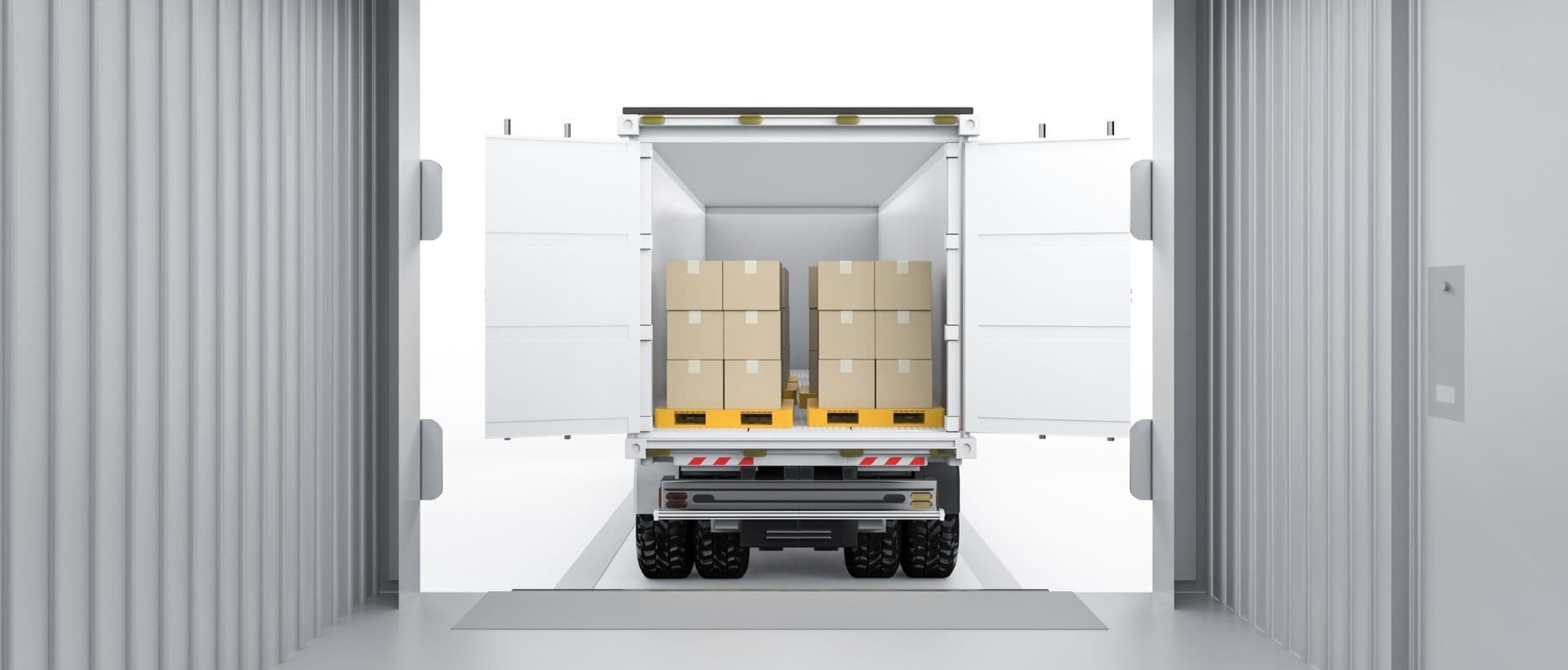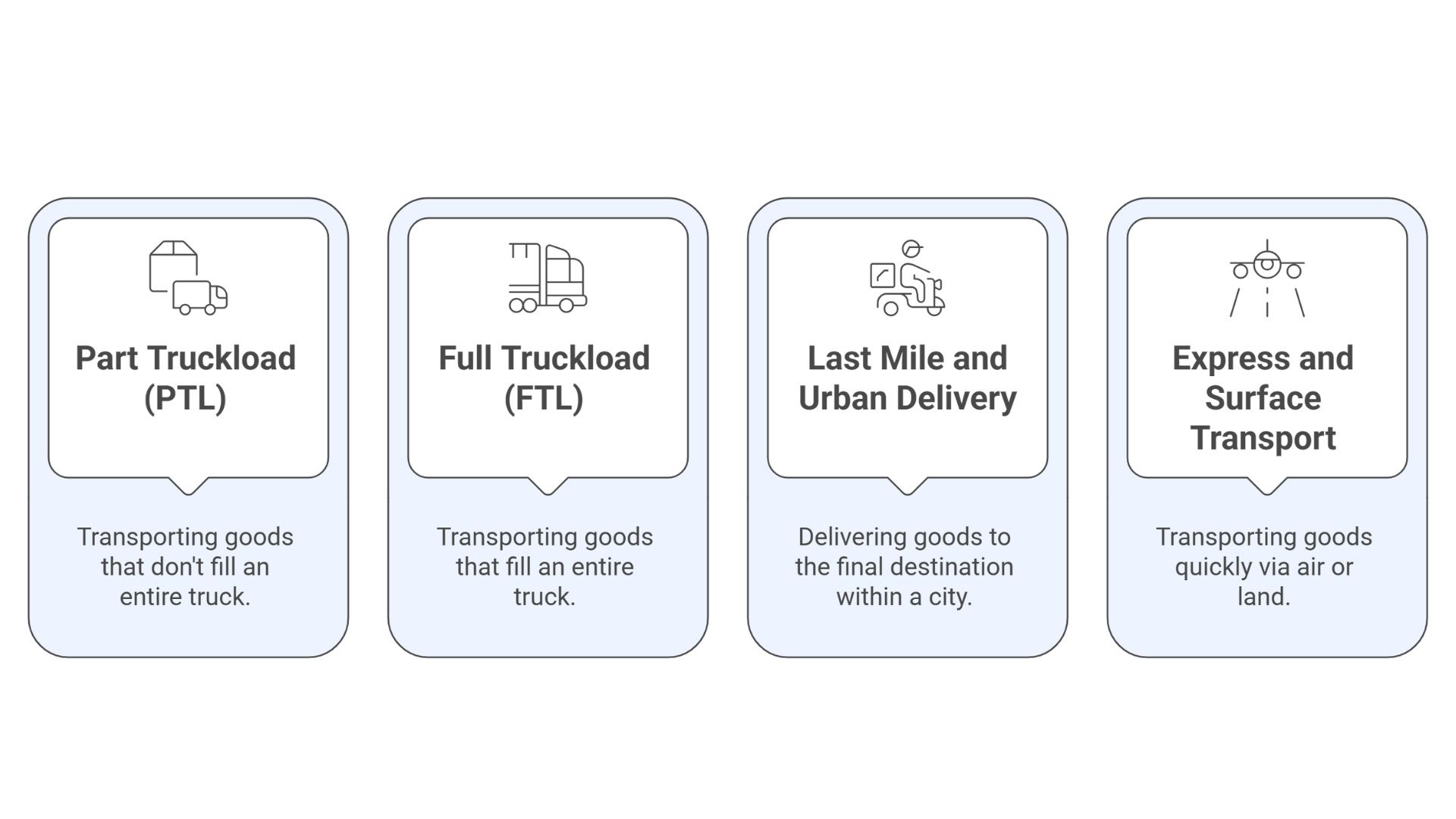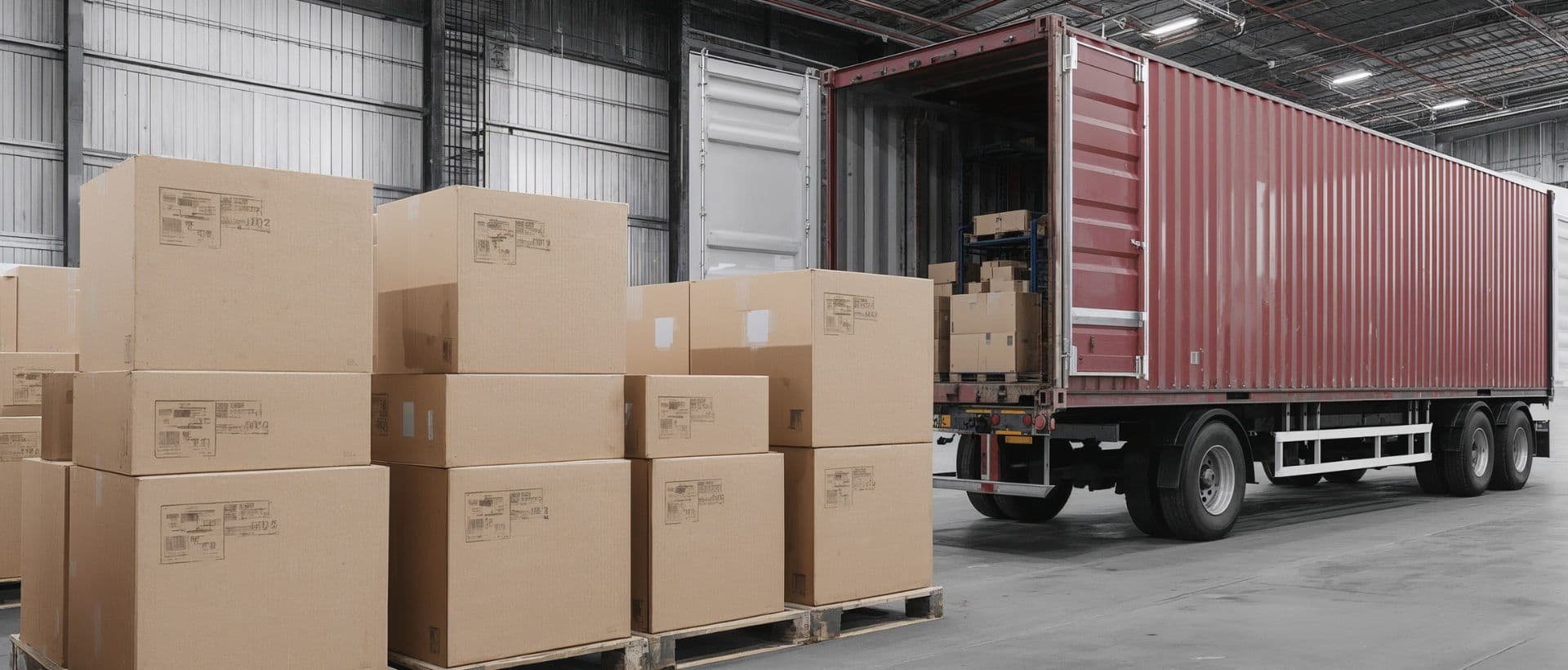
Transport Services in Hyderabad: Powering South India's Supply Chain Growth
November 14, 2025
AAJ Swift

The logistics service sector in Hyderabad is expected to expand at approximately 12% annually. This is because B2B trade is expanding, which also means that e-commerce is on a path for growth. These numbers are a clear indicator that the city is now at the focal point for the supply chain in South India.
Hyderabad is the conduit for goods that thread together the states of Telangana, Andhra Pradesh, Karnataka and Tamil Nadu through highways, clusters of warehouses, and high-capacity transport corridors. All day, every day, manufacturers, distributors, e-commerce merchants, and retail chains depend on Transportation Services in Hyderabad to cover the moves that supply many of the strongest industries in the region.
The Pharma, automotive, FMCG, electronics and e-commerce industries all have a consistent reliance on predictable B2B transportation capacity in order to keep shelves stocked and production lines stable.
Why Hyderabad Is Emerging as a Transport and Logistics Hub
Location is at the heart of this exceptional growth. The central position of Hyderabad, supported by NH44 and the Outer Ring Road, gives transporters clear routes in all directions. The expressways carry long-haul trucks with less congestion, so the transit is more reliable. All these layers of connectivity allow Logistics Services in Hyderabad to serve regional as well as national markets with increased flexibility.
The role of policy support is also quite big. You should know that the Telangana industrial policy has been stressing quicker approvals and easier licensing, along with a streamlined, transparent infrastructure development. Investors, in turn, provided large warehouses, modern transport and distribution centers and better 3PL setups. Many of these facilities use updated racking, scanning systems and digital tools.
With the dramatic upgrade to 3PL capacity, there has been a better strength for B2B Logistics Services in Hyderabad. With more carriers and more consolidation hubs, the city deals with Pan India freight and PTL Transport Services in Hyderabad is now extremely efficient.
Understanding Transport Services in Hyderabad

Part Truckload (PTL) Transport
PTL works well for the middle zone between small parcels and large full-truck loads. Instead of paying for an entire vehicle, businesses book only the space they need. This shared truck model reduces shipping cost, which suits SMEs, wholesalers and e-commerce sellers who move moderate quantities.
Digital booking tools have improved the PTL transport experience. AAJ Swift's online PTL transport in Hyderabad booking gives shippers the ability to select pickup timings, check estimated delivery schedules and track consignments from a single dashboard. This is helpful for small businesses that cannot spend time calling for updates. Better visibility also helps predict stock arrival, which reduces handling delays at the logistics hub. Many businesses find PTL useful during seasonal fluctuations because the cost stays manageable even when shipment volumes change from week to week.
Full Truckload (FTL) Transport
FTL remains the preferred option for high-volume goods or sensitive cargo that must travel without intermediate stops. FTL works best for long-haul movements from Hyderabad to Chennai, Bangalore, Coimbatore or farther into western and northern regions. Direct routing protects delicate cargo such as electronics or pharma cartons. For heavy automotive parts, the lack of mid-route transfers reduces risk.
FTL is still the backbone of B2B Transport Services in Hyderabad because of its speed and lower handling exposure. Many companies combine FTL for large dispatches with PTL for overflow during peak seasons.
Last Mile and Urban Delivery
The last mile is where logistics meets the customer. In Hyderabad, this stage needs careful planning because of crowded markets, narrow lanes and uneven traffic patterns. Retail chains and e-commerce companies pay close attention to this segment since timely delivery affects customer loyalty. Tools like route planners and Transport Management Systems help drivers identify the right sequence of stops, avoid jams and reduce delivery time. These tools also help manage returns, which are common in e-commerce.
Express and Surface Transport
Express transport works for urgent requests or goods with strict timelines. For example, an effectively managed express shipment from Hyderabad to Chennai is a twenty-four hour service. To Bangalore, a typical B2B shipment will be from fourteen to eighteen hours, based on the time of pickup until delivery. Surface transport is slower and expensive. Companies tend to vary the transportation mode with each load, depending on the need and priority.
Types of Businesses Benefiting from B2B Transport Services in Hyderabad
Manufacturers tend to depend on steady inbound material when it comes to production. If there is a delay in steel, packaging, chemical feedstock or electronic components, it can bring a halt to production. In addition to this, distributors and wholesalers supply retail counters across multiple states. This means that they need a route they can rely on to get the job done. And since retail chains always plan for delivering in multiple regions, they need a tiger schedule. As a result, most startups and SMEs can get benefits from shared B2B logistics models because they do not pay for unused space.
How Modern Transport Solutions in Hyderabad Are Powering Supply Chain Growth
Technology has now influenced how transporters plan and manage shipments. GPS tracking provides real-time location information, which allows companies to build out receiving schedules with fewer surprises. Today's fleets utilize tools that capture fuel consumption data, driver hours, and route choices.
Route optimization is one of the greatest contributing factors to lower courier charges. In a city with multiple dense packets like Charminar, Abids, and Kukatpally, saving a few minutes per stop can make all the difference in a shift. Sustainability is also beginning to take on more importance. Electric vehicles are more frequently seen in short-range urban deliveries. Cleaner engines and advanced fuel planning will further reduce emissions and operating costs.
Factors to Consider When Choosing a Transport Service in Hyderabad
Selecting the right logistics partner in Hyderabad requires attention to several factors. A business must check interstate coverage if markets extend beyond Telangana. Tracking capability is now essential because supply chains move faster and need more visibility. Integration with warehouse systems reduces manual entry and lowers the risk of error. Insurance terms need clear definitions so claims do not drag on. Companies should study how the provider handled similar goods for other clients. Transit times for main lanes like Hyderabad to Bangalore, Chennai and Pune can reveal how reliable the transport service provider is. Flexibility also matters. Models that offer PTL or shared loads often reduce cost for mid-volume shippers.
Benefits of Partnering with Local B2B Transport Services in Hyderabad
Local providers understand the city's practical details. They know which roads get busy at certain hours, where loading restrictions apply and which industrial pockets allow night pickups. This knowledge trims time and prevents avoidable delays. A local team can adjust pickup schedules with shorter notice. Their drivers also understand small lane access, which helps with last-mile and multi-stop runs. Businesses save money because trucks face fewer detentions and fewer route detours. Many local partners also offer shared models that keep cost predictable.
Common Mistakes Businesses Make When Choosing Transport Services
Choosing a B2B transport company based solely on price is ill-advised. Low prices often mask poor tracking, inconsistent schedules or poor claims practices. Some companies even throw out the technical capability of the provider. A partner who doesn't have TMS or tracking adds a burden to your internal team. With some, even when the plan is to expand and the business will have expansion consultation with delivery zones as a consideration, none will check; it's just taken for granted! Insurance: Without a clear policy, it will take far too long to settle disputes, which strains the working relationship.
Future of Transport and Logistics Services in Hyderabad
The future points toward larger, more efficient infrastructure. Logistics parks near the city's edges will handle cross-docking and sorting for Part load transport with better speed. TMS and AI will become standard tools. Urban consolidation centers may reduce the number of individual delivery trips in crowded markets. Electric fleets will likely expand as charging infrastructure improves.
How AAJ Swift Supports Efficient Movement Across the Region
AAJ Swift combines transportation technology with local knowledge. Their online PTL booking helps businesses reserve space with less effort. Tracking features show the progress of each load. For larger clients, AAJ Swift handles LTL schedules across South India with dependable routing. Their teams understand local patterns and plan accordingly. This reduces detention and supports smoother pickups. They also experiment with cleaner vehicle options in dense zones.
Conclusion
Hyderabad has grown into a vital link for South India's supply chain. As we have clearly seen, the advancements we see in modern technology, coupled with the country's own transportation growth, have played a vital role in boosting transport services in Hyderabad. Over the years, you are sure to see even more advanced transport solutions in Hyderabad.

